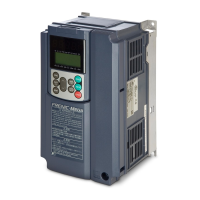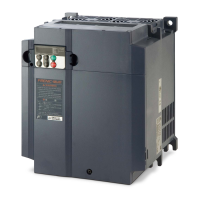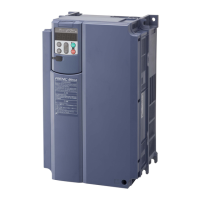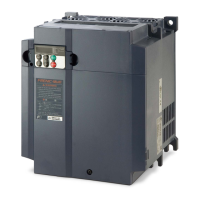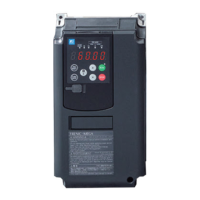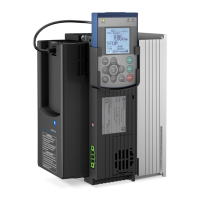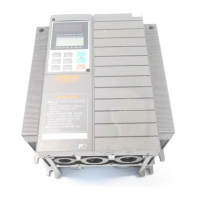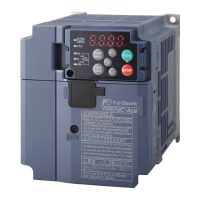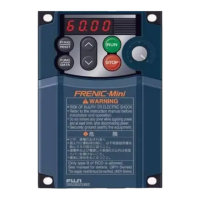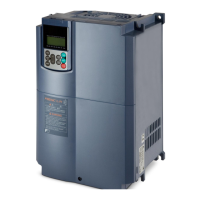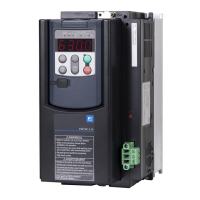2-8
The wiring procedure for the FRN0.75C1S-2 is given below as an example. For other inverter
types, perform wiring in accordance with their individual terminal arrangement. (Refer to page 2-3.)
c Grounding terminal ( G)
Be sure to ground either of the two grounding terminals for safety and noise reduction. It is stipulated
by the Electric Facility Technical Standard that all metal frames of electrical equipment must be
grounded to avoid electric shock, fire and other disasters.
Figure 2.4 Grounding Terminal
Wiring
Grounding terminals should be grounded as follows:
1) Connect the grounding terminal of the 200 V or 400 V class
series of inverters to a ground electrode on which class D or C
grounding work has been completed, respectively, in confor-
mity to the Electric Facility Technical Standard.
2) Connect a thick grounding wire with a large surface area and
which meets the grounding resistance requirements listed in
Table 2.7. Keep the wiring length as short as possible.
Above requirements are for Japan. Ground the inverte
according to your national or local Electric code require-
ments.
d Inverter output terminals, U, V, W and grounding terminal ( G)
1) Connect the three wires of the three-phase motor to terminals
U, V, and W, aligning phases each other.
2) Connect the grounding wire of terminals U, V, and W to the
grounding terminal (
G).
Figure 2.5 Inverter Output Ter-
minal Wiring
- The wiring length between the inverter and moto
should not exceed 50 m. If the wiring length exceeds
50 m, it is recommended that an output circuit filte
(option) be inserted.
-
Do not use one multicore cable to connect several
inverters with motors.
Table 2.7 Grounding Stipulated in the Electric Facility Technical Standard
Supply voltage Grounding work class Grounding resistance
Three-phase 200 V
Single-phase 200 V
Single-phase 100 V
Class D 100Ω or less
Three-phase 400 V Class C 10Ω or less
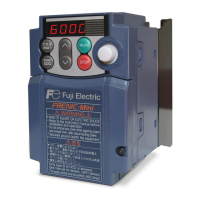
